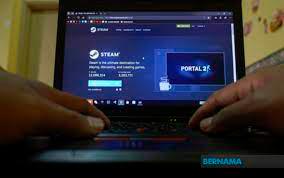PETALING JAYA: Coursera’s latest Global Skills Report emphasises the urgent need for Malaysia to bridge the current skills gap at a faster pace as the country accelerates its digital economy agenda.
The report reveals that while Malaysian learners are relatively more adept at digital skills like cloud computing and data analysis, there is a significant skills gap across business, technology and data science. Overall, Malaysia is considered competitive with 57% proficiency, ranking 46th globally and fourth in Southeast Asia. The country lags behind neighbours like Singapore (#10), Vietnam (#20), Indonesia (#45), but ahead of the Philippines (#69) and Thailand (#76).
The study aims to provide actionable insights to governments, workforce, and industry leaders about the latest skill trends and their relationship to economic resiliency and growth. It draws on performance data since the pandemic’s onset from more than 77 million learners on the platform to benchmark skills proficiency across business, technology, and data science for over 100 countries.
“The pace of skills transformation is slower than the pace of digital transformation in Malaysia, as is the case in several countries across the world. Learners must invest in both soft and technical skills to prepare for jobs of the future,” said Coursera managing director for India and APAC Raghav Gupta.
The report observes the following trends in Malaysia:
Cutting-edge proficiency in cloud computing and data analysis
Cloud computing and data analysis have emerged as key skills for the pandemic-induced digital transformation. Malaysian learners showcased high skill proficiency at 91% and 79% respectively, indicating a growing pocket of highly-skilled technical professionals in the country.
Off to a good start with emerging technologies
Although proficiency in machine learning (ML) is at 50%, Malaysia observed more learners opting for online learning to arm themselves with the skills of the future. The top trending skills among Malaysian learners included python programming, ML, IoT and data management.
Room for further development across digital skills
Malaysia secured mid-rankings globally in each domain – #52 in business, #48 in technology and #51 in data science. With 56% proficiency in technology, Malaysia lags behind neighbours like Singapore (96%), Vietnam (88%) and Indonesia (78%).
The data science domain tracked a similar index with 52% proficiency, placing Malaysia only slightly ahead of Indonesia (46%), Thailand (46%) and the Philippines (44%).
Key skills including software engineering, mathematics and programming scored less than 50% in the report’s benchmark, despite the nationwide push to encourage a new generation of STEM talent.
Based on the performance data of millions of learners on Coursera globally, the report for the first time reveals the skills and time required to prepare for entry-level roles.
Recent graduates and mid-career changers can develop entry-level, digital job skills in as little as 35 to 70 hours (or one to two months with 10 learning hours per week). However, someone with no degree or technology experience can be job-ready in 80 to 240 hours (or two to six months with 10 learning hours per week).
The most transferable skills across all future jobs are in human skills like problem solving and communication, computer literacy, and career management.
“The report indicates that the skills needed for high-demand entry-level roles can be developed in a matter of months, not years,” added Raghav.
Coursera has over 411,000 learners in Malaysia as of June 30, 2021, growing at 45% year-on-year.












